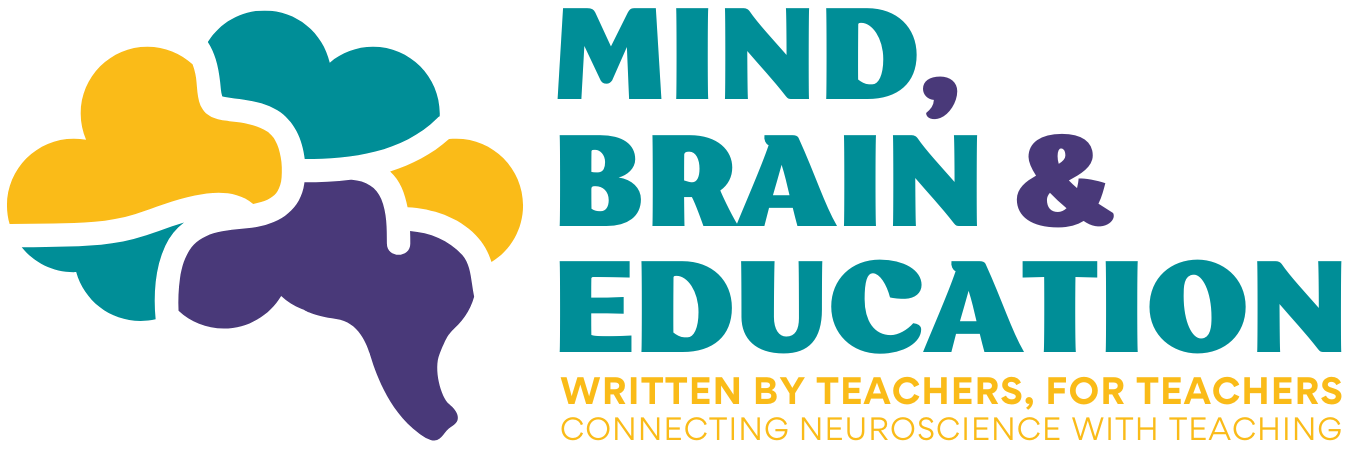Air, food, water, and sleep. These are the four basic needs of the human body.

University students—and their teachers—usually do fine on the first three, but the last tends to be a problem. We know the physiological importance of sleep from a rich diversity of research studies. In biology, for instance, a team led by University of Chicago scientist Allan Rechtschaffen found that “all rats subjected to unrelenting total sleep deprivation died, usually after 2–3 weeks” (as cited in Gonzales and Gadye, 2015). In genetics, researchers discovered a family in Italy that has a gene which “turns off sleep” at a certain point in their lives and makes the family members completely unable to fall asleep; they are dead within six months of the gene’s activation (Max, 2001). Social scientists observe that lack of sleep is probably the greatest contributing factor to fatal traffic accidents (due to lack of alertness), and psychologists report that one of the main contributing factors to suicide is lack of sleep (National Sleep Foundation, 2020; Rosekind, 2008). You probably know that sleep deprivation is one of the favorite tools of torturers and that prisoners who are deprived of sleep for long enough—even three or more days—often begin to hallucinate and may begin to go insane, which is one of the reasons depriving prisoners of war of sleep is against the Geneva Conventions. These facts make it all the more strange when people voluntarily fail to get sufficient sleep. Of course, you may argue that you are “not going to die” or “go insane” if you don’t get enough sleep, but there are nevertheless huge personal costs to sleep loss and sleep disruption (National Sleep Foundation, 2020; Rosekind, 2008).
Facts about sleep
- Extensive research in many cultures shows that almost all adults (those 20 years of age and older) need an average of seven-and-a-half to eight hours of sleep a night to function well, and teenagers (13-19) need eight to ten hours.
- Sleep need is genetically determined: you can’t “learn to sleep less,” and how much you need to sleep is solely determined by the amount of sleep you require to be fully awake and alert during the next day. Einstein slept 9 hours a night while Edison slept only 4. But Edison took two 3-hour naps during the day, for a total of 10 hours of sleep during a 24-hour-day. Total sleep hours = Edison 10, Einstein 9.
- Insufficient sleep is cumulative: the negative effects of sleeping only 4-6 hours one night, then only 4-6 hours the next night, and so on, accumulate and continue to build “sleep debt”; the less sleep people get, the worse the state of their bodies and minds becomes.

- Deprived of sleep, a person’s body tries to “make up” the sleep later, such as on weekends, but it can often take more than 2 nights to make up the accumulated sleep loss, so people who try to catch up on the weekend after depriving themselves of sleep during the week often are unable to restore a healthy balance.
- When people fail to get adequate sleep, they perform more poorly in almost all aspects of their lives.
(National Sleep Foundation, 2020; Rosekind, 2008)
The Cost of Inadequate Sleep (from one of the world’s leading experts on sleep)
How “poorly” do people perform when they fail to get adequate sleep? Dr. Mark Rosekind, a Stanford University physiologist who directed sleep research for NASA and who is one of the world’s leading authorities on sleep, summarizes the following effects of lack of sleep. Based on extensive research, especially on astronauts and test pilots working for NASA, Rosekind (2008) observes that short, interrupted, or inadequate sleep for only one night has these effects:
↓Memory decreases 20%
↓ Reaction time decreases 25%
↓ Vigilance decreases 75%
↓ Communication effectiveness decreases 30%
↓Quality of Judgment/Decision-Making decreases 50%
↑Lethargy and apathy increase 50%
↑ Micro-sleep (unplanned blanking out) increases 100%
↑Attention lapses increase 500%
The costs above are not the result of torture, bad genes, or long-term sleep deprivation but rather a single night of inadequate sleep (four hours or less). Surgeons, pilots, lawyers, athletes, and, of course, students and teachers, all perform poorly when they get insufficient sleep. As Rosekind observes, lack of sleep for even one night takes away an athletic edge and an academic advantage: for an athlete, it is at least the difference between a gold or bronze medal (or no medal at all); for students the difference between an A or a B on a test or essay.
Rosekind (2008) and his fellow researchers at NASA, Stanford, and elsewhere have concluded that four hours of sleep deprivation puts you in the “legally drunk” performance range (you perform at about the same level as someone who is intoxicated). In addition to the deficits above, Rosekind’s team discovered another startling effect: an overwhelming impact on how good you feel. Mood is more difficult to quantify than attention lapses or memory, but imagine a rating scale that ranges from +10 for feeling very happy and -10 for feeling very depressed. Significant lack of sleep on a single night has this effect:
↓Mood down 100%

This 100 percent downward drop in mood pretty much guarantees that you will “feel bad” the following day, which also affects performance and learning. Inadequate sleep also has direct negative effects on physical health. For example, in a study of 1,600 adults, medical researchers in Finland found that, compared with good sleepers, female sleepers who got inadequate rest were 3.5 times more likely to have health problems, and poor male sleepers were 6.5 times more likely. Lack of sleep greatly decreases the function of the immune system and lowers its ability to fight off bacteria, viruses, and fungi (Dement, 2000, p. 263). Dr. Helene Emsellem, a physician who specializes in teen sleeping disorders, observes that teens who get insufficient sleep are at “higher risk for high blood pressure, diabetes, cancer, heart disease, migraines, and obesity, as well as for suicide and adjustment disorder” (2006, p. 3). Sleep-deprived students are more likely to “catch colds, flus, and other acute and chronic illnesses” and more likely to take longer to recover, because their immune systems are weakened by lack of sleep (p. 25). This, in part, explains why from her review of various studies Emsellem concludes, “Students who receive C’s, D’s, and F’s go to sleep later and have less regular sleep patterns than those who get A’s and B’s” (p. 2). (To date, no research has been reported on how lack of sleep affects teaching performance or student evaluations of teachers!) Students who get insufficient sleep or have irregular sleep patterns also miss more classes and have less time to study, due to illness. Yet this is only part of the story of the relationship between sleep and performance.

Just as noteworthy are the positive effects of adequate sleep upon memory, learning, and thinking, particularly in the university classroom. One experiment found that students who memorized a list of words could recall them with 40% better accuracy after one night’s sleep than they could before going to bed (students learning a language should think about this when studying vocabulary!). This suggests that staying up all night to review for an exam may actually harm one’s chances of remembering the material; it also implies that teachers can effectively craft assignments in stages that build in review time. Another study on problem-solving and creative thinking in math found that students who were given 12 day-time hours off after initial training on problem-solving methods performed 20 percent better in finding an additional technique to solve the problems. But students who were given a 12-hour stretch in which they were able to “sleep on the problems” (for approximately eight hours) tripled that performance and scored 60 percent better (Emsellem, 2006, p. 75; Medina, 2008). This also suggests that pedagogy and problem sets are best structured in stages over a series of days (and nights). Experts at the National Sleep Foundation (2020) state flatly that sleep is essential to maintain “memory,” “complex thought,” and “cognitive performance,” and that “sleep-deprived people have a hard time concentrating and paying attention.” In Brain Rules (2008), a book about achieving peak cognitive performance, neuroscientist and physiologist John Medina makes the same point when he concludes:
The bottom line is that sleep loss means mind loss. Sleep loss cripples thinking, in just about every way you can measure thinking. Sleep loss hurts attention, executive function, immediate memory, working memory, mood, quantitative skills, logical reasoning ability, general math knowledge…. When you look at all of the data combined, a consistency emerges: Sleep is rather intimately involved in learning. It is observable with large amounts of sleep; it is observable with small amounts of sleep; it is observable all the time. (p. 163)
John Medina
It probably comes as no surprise, then, to learn that staying up most of the night reduces rather than boosts students’ academic performance, and that, conversely, research by Rosekind (2008) and others has shown that if our students study and then get adequate sleep their performance will improve by 25% to 50%. It appears that these straightforward equations [sleep loss = lower performance; adequate sleep = higher performance] are both hard-wired and soft-wired in the brain. When we sleep, our brains are not “turning off” or “shutting down” but rather processing information, solving problems, and consolidating learning from the previous day. Medina refers to this as the “offline processing” that occurs at night in our brains (2008, p. 164).
Regardless of culture, workplace, or personality, there are some basic principles which can help people, including students and teachers, get adequate rest and perform at their peak. Since these are especially crucial to young people engaged in learning, they can be integrated into a language-learning lesson and form the basis for class discussion. In short, according to sleep research, if you wish to perform at your peak you should:If sleep loss lowers performance, and if it is difficult, if not impossible, to feel curious, stimulated, interested, inquiring, observant, and happy-to-be-alive when sleep-deprived, why then do students, workers, executives, teachers, and even physicians in training reduce their ability to learn and lower the quality of their lives by getting inadequate sleep? There are an abundance of reasons—too many and too complex to examine at length here. In brief, common causes include bad habits, poor planning, long commutes, inability to manage time, peer pressure, job insecurity, excessive socializing, cultural norms, professional demands, or sometimes, in the case of students, over-involvement in student organizations or dorm activities. In the university, it is rarely the result of “too much homework from teachers” (although this is a popular claim by students).
- Allow yourself the possibility for a full 8 hours of sleep every night.
- Have a regular bedtime and waking time (your wake-up time should ideally be within the same hour every day, even on weekends).
- Use a regular prepare-for-sleep routine 15-30 minutes before going to bed (taking a bath, brushing teeth, setting out your clothes for the next day).
- Avoid work and worry in bed (don’t study in bed or prepare for classes prior to sleeping, unless it’s a brief review or preview).
- Don’t be hungry or full when going to bed.
- Avoid violent movies and arousing stories just before sleeping.
- Move laptops, cell phones, and TVs out of your sleep area. (Some studies report that for each electronic device in the bedroom, people get an average of one less hour of sleep per night—yes, leave your cell phone in the other room, if you have the willpower!).
- If you “toss and turn” for more than 30 minutes after going to bed, get up and read something boring (a textbook you don’t like) and then go back to bed.
- Avoid caffeine (coffee, tea, or cola), nicotine (cigarettes, Juuling), and alcohol in the evening, and, depending upon your sensitivity, even in the afternoon.
- If tired during the day, take a 10- to 30-minute nap in the afternoon, resting your head on a desk or stretching out on the grass somewhere on campus.
- Try to get physical exercise for a minimum of 30-60 minutes at least three times a week through swimming, jogging, a gym workout, aerobic yoga, playing a sport you like, or just walking briskly.
(based on Ancoli-Israel, 1996, p. 20; Emsellem, 2006, pp. 118-120; Hauri & Linde, 1990, pp. 59-63 & 136)

The last principle—exercise—is one of the most important. As anthropologist Richard Wrangham observes, the human body during its million-year evolution has been designed to walk 10-15 kilometers a day (as cited in Medina, 2008, p. 10). Although our lifestyle has changed in the last hundred or so years, our bodies haven’t. One negative consequence of a lifestyle with little movement is difficulty in sleeping. One positive consequence of a lifestyle with movement is a boost in brain performance. In Brain Rules (2008), Medina presents an array of evidence to argue that exercise is the most important factor in peak cognitive performance throughout a lifetime. He speculates that this is due to the increased flow of oxygen-rich blood that exercise brings to the brain. The steady and considerably positive effect of exercise on mental performance holds true from childhood to old age. For language teachers—especially those who work within traditions that aspire to “whole person” education—exploring the relationship between sleep and learning, movement and mental performance can provide the basis for lessons that can foster student discussion and self-reflection, and positive outcomes beyond the classroom.
The liberal arts university one of the co-authors (Paul) taught at when he first became concerned with health, learning, and performance described its foremost aim as to cultivate “adventurous minds capable of critical thinking and sensitive to questions of meaning and value” (International Christian University, p. 6). Let us now add, “by encouraging them to get enough sleep and exercise!”

Activities for the classroom
- Keep a record of your sleep pattern: (1) when you went to bed; (2) approximately how long it took you to fall asleep; (3) when you woke up. Share and discuss your record and patterns with classmates.
- Keep a record of how much you need to sleep to feel fully awake and alert through the day (with the exception of the natural sleepy times after a meal and in the late afternoon). Share and discuss this with classmates.
- Keep a record of your major physical movement over a week: (1) how long or far you walked or ran or biked; (2) what exercise you did; (3) how you felt at various times of the day. Are there any relationships between the exercise and the feelings? Share and discuss these with classmates.
Other Activities
Self-Evaluation of Sleep Debt (adapted from Dement, 2000, p. 339)
0 = would never doze
1 = slight chance of dozing
2 = moderate chance of dozing
3 = high chance of dozing
___ Sitting and reading
___ Watching TV
___ Sitting listening to a lecture or studying in the library
___ As a passenger riding on a train for an hour without a break
___ In a car, while stopped for a few minutes in traffic
___ TOTAL SCORE
Evaluate your total score:
0-5 Slight or no sleep debt
6-10 Moderate sleep debt
11-20 Heavy sleep debt
21-25 Extreme sleep debt
1-Week Sleep and Exercise Log
Went to bed (time) | Went to sleep (time) | Woke up | Total time | Sleep quality | Exercise type | How long | Overall condition the next day |
|
|
|
|
|
|
|
|
|
|
|
|
|
|
|
|
|
|
|
|
|
|
|
|
|
|
|
|
|
|
|
|
|
|
|
|
|
|
|
|
|
|
|
|
|
|
|
|
|
|
|
|
|
|
|
|
|
|
|
|
|
|
|
|
1-Week Sleep and Exercise Log (Example)
Went to bed (time) | Went to sleep (time) | Woke up | Total time | Sleep quality | Exercise prev. day | How long | Overall condition the next day |
11 | 11:20? | 7:15 | 8 hrs | great | tennis | 1 hr | very good |
1:30 am | 1:35 am | 6:00 | 4 1/2 | okay | 0 | 0 | tired, low mood |
|
|
|
|
|
|
|
|
|
|
|
|
|
|
|
|
|
|
|
|
|
|
|
|
|
|
|
|
|
|
|
|
|
|
|
|
|
|
|
|
|
|
|
|
|
|
|
|
References
Ancoli-Israel, S. (1996). All I want is a good night’s sleep. St. Louis, MI: Mosby.
Dement, W. C. (2000). The promise of sleep. New York, NY: Dell.
Emsellem, H. A. (2006). Snooze… or lose. Washington, D.C.: Joseph Henry.
Hauri, P., & Linde, S. (1990). No more sleepless nights. New York, NY: John Wiley & Sons.
Gonzalez, R., & Gadye, L. (2015). Can you die from sleep-deprivation? Gizmodo. https://io9.gizmodo.com/can-you-die-from-sleep-deprivation-1684235719
International Christian University (2006). Bulletin of the college of liberal arts. Tokyo, Japan.
Max, D. (2001). Case study: Fatal familial insomnia; Location: Venice Italy; To sleep no more. New York Times Magazine. https://www.nytimes.com/2001/05/06/magazine/3-case-study-fatal-familial-insomnia-location-venice-italy-to-sleep-no-more.html
Medina, J. (2008). Brain rules: 12 principles for surviving and thriving at work, home, and school. Seattle, WA: Pear Press.
National Sleep Foundation. (2020). http://www.sleepfoundation.org
Rosekind, M. (2008, November). The nature of sleep. Tokyo, Japan: The American School in Japan.

Paul Wadden, editor of Teaching English at Japanese Universities: A New Handbook (Routledge 2019) and A Handbook for Teaching English at Japanese Universities (Oxford 1993), is a professor in the Faculty of International Liberal Arts at Juntendo University.

Elena Wadden is a medical student at Columbia University Vagelos College of Physicians and Surgeons.

